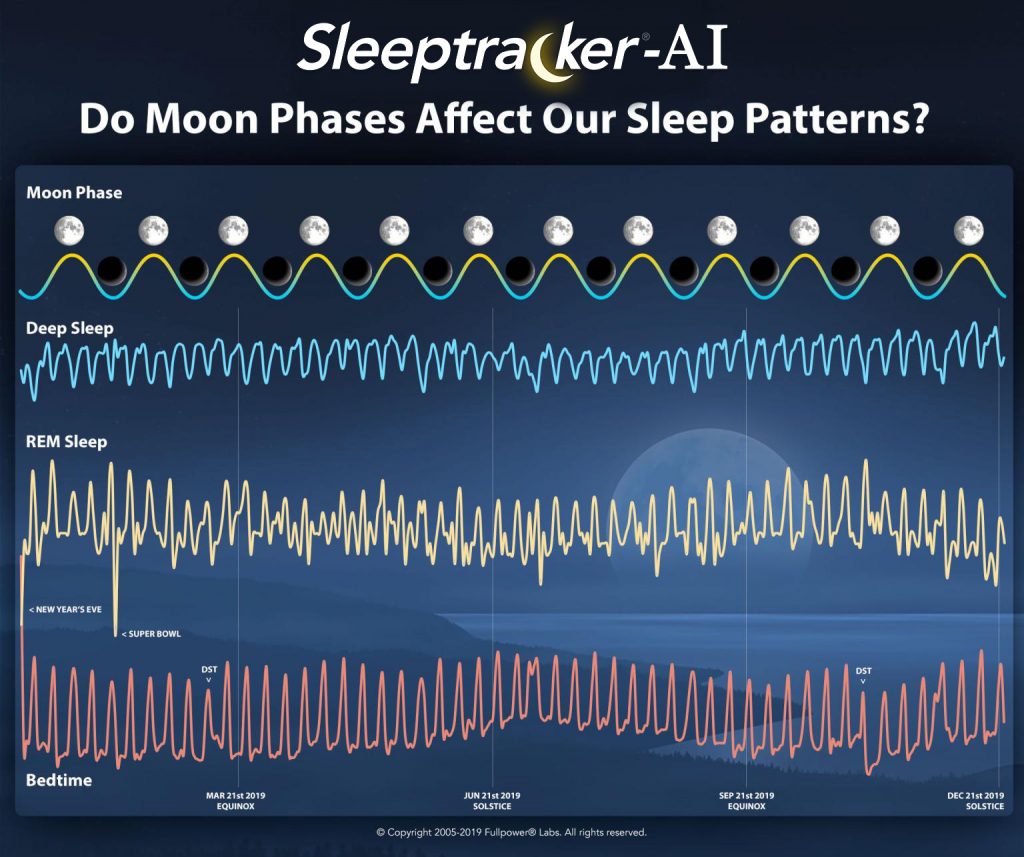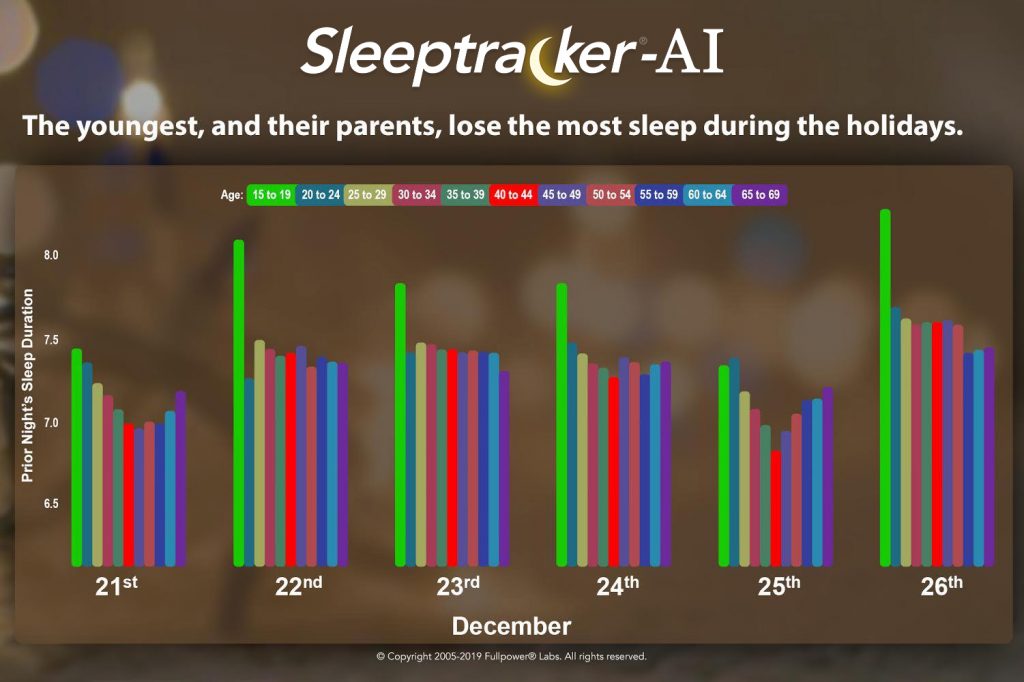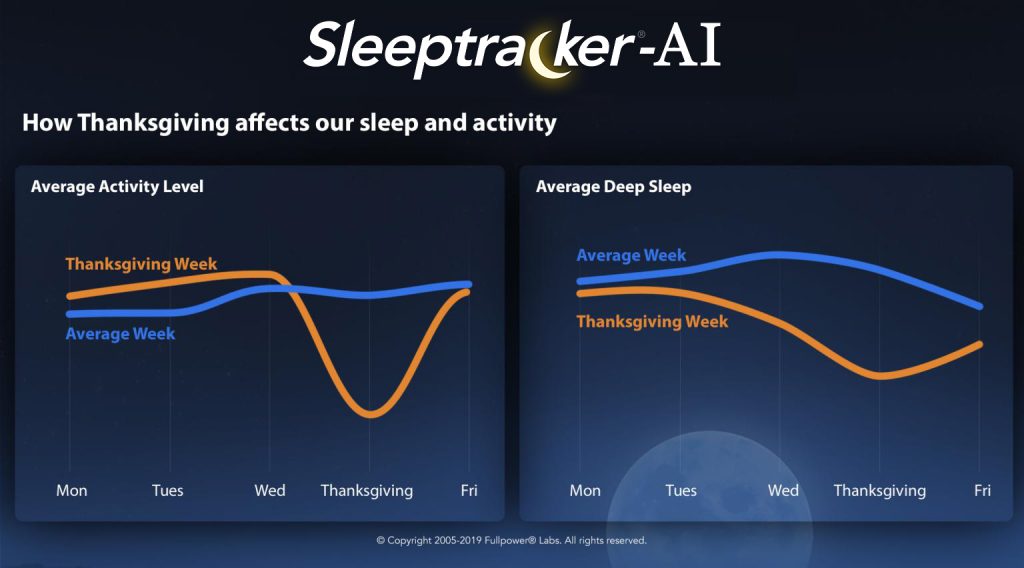Getting up multiple times during the night may have implications on the quality of our sleep, and our overall health
Respiratory Events and Sleep: Body Mass is a Big Factor for Both Men and Women
Effects of Super Bowl LIV on Sleep of Fans in Kansas and Missouri
For the first time in 50 years, Kansas City fans enjoyed an extraordinary evening. Their sleep stats showed for celebration. Congratulations!

Fullpower Announces Issuance of 11th Sleep Monitoring Technology Patent
SANTA CRUZ, CA – January 22, 2020 – Fullpower® Technologies, Inc. “The sleep technology company,” today announced that the United States Patent and Trademark Office has issued U.S. Patent 10,463,300, Fullpower’s 11th sleep-focused patent. The patent covers user monitoring systems for sleep technology, smart-home, and wearable device areas.
“This is the eleventh sleep-focused eligible U.S. patent Fullpower has been granted for our advanced sleep technology platform, and it reflects our strategy to broaden and diversify our intellectual property portfolio to obtain protection for the many innovations of the Sleeptracker® AI technology platform,” said Philippe Kahn, Chairman of Fullpower Technologies, Inc. “In this case, we believe our technology offers novel and potentially superior options and reflects on our deep investment in sleep technology innovation. This represents significant unmet medical, smart-home and wearable needs with large market opportunities.”
The market opportunity for sleep technology is large and growing. For example, according to Statista.com, the size of the U.S. mattress market is projected to be $14.47 billion in 2020 and growing.
With sleep being one-third of everyone’s lives, the opportunities to use Fullpower non-invasive polysomnography-level technology to improve sleep quality outcomes represent strategic opportunities.
About Fullpower Technologies, Inc.
Fullpower Technologies, Inc. designs, develops and operates a complete platform for hybrid Edge/Cloud AI, algorithms, big data, predictive analytics, together with end-to-end engineering services. The Company’s platform is backed by a patent portfolio of 125+ patents. The Company’s key areas of expertise are non-invasive PSG-level sleep technology as well as general activity quantification. The Company’s markets are in Medical, SmartHome and Wearable Solutions. For more information, visit www.fullpower.com. Please contact: BusDev@fullpower.com #AI #sleep
Fullpower® and Sleeptracker® are trademarks of Fullpower Technologies, Inc., registered in the U.S. and other countries.
Fullpower Announces Issuance of 10th Sleep Monitoring Technology Patent
SANTA CRUZ, CA – January 16, 2020 – Fullpower® Technologies, “The sleep technology company,” today announced that the United States Patent and Trademark Office has issued U.S. Patent 10,485,474 for a “Sleep Monitoring System.” The patent covers intelligent sleep and alarm scheduling systems.
“This is an exciting innovation eligible for a U.S. patent,” said Philippe Kahn, CEO of Fullpower. “This patent reflects our strategy to broaden and diversify our intellectual property portfolio to obtain protection for the many applications of our AI-powered sleep technology platform. In this case, we believe our technology offers a novel and superior option for non-invasive sleep monitoring system that delivers PSG-level accuracy.”
The sleep ecosystem worldwide is a $4.3 billion market that’s growing 7.2% a year, according to a recent Marketdata U.S. sleep market report.
About Fullpower Technologies Inc.
Fullpower Technologies designs, develops and operates a complete platform for hybrid Edge/Cloud AI, algorithms, big data, predictive analytics, together with end-to-end engineering services. The Company’s platform is backed by a patent portfolio of 125+ patents. The Company’s key areas of expertise are non-invasive PSG-level sleep technology as well as general activity quantification. The Company’s markets are in Medical, SmartHome and Wearable Solutions. For more information, visit http://www.fullpower.com. Please contact: BusDev@fullpower.com
Do Moon Phases Affect Our Sleep Patterns
Can you see a correlation with the phases of the moon? Are we still connected from an evolutionary perspective? What do you think the data shows? You can see singularities on New Years and Super Bowl night for sure, but moon phases have little to do with them!

The best of 2020 to all our friends and colleagues
The best of 2020 to all our friends and colleagues from all of us at Fullpower.com. May 2020 be even more prosperous than 2019!

The youngest, and their parents, lose the most sleep during the holidays
We analyzed Sleeptracker data for the last several years. For accuracy, we are always reminded that www.fullpower.com is operating polysomnography labs using Philips/Respironics Alice 6 equipment continuously since 2014.
The data shows the profound effect that the holidays have on the younger ones and their parents!

How Thanksgiving affects our sleep and activity
We looked at sleep and activity data for several years, looking at both Sleeptracker® and MotionX® activity information. The data clearly shows similar patterns from year to year. Thanksgiving and the Holidays, in general, change our sleep and activity levels significantly. Here is an article form the New York Time that discusses some of this impact:
https://www.nytimes.com/2007/11/20/health/nutrition/20well.html#sleep
